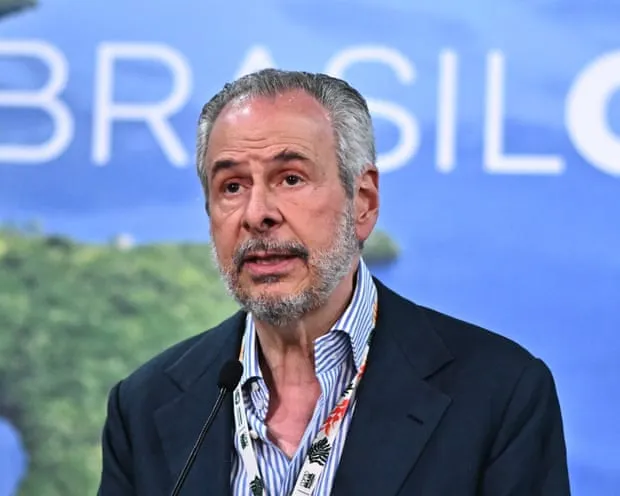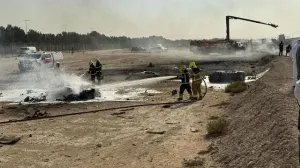COP30 Climate Summit Excludes Fossil Fuels from Negotiation Draft

The ongoing COP30 climate summit in Belém, Brazil, has seen the controversial decision to remove all references to fossil fuels from the draft agreement under negotiation. This significant development comes as representatives from nearly 200 countries prepare for the concluding stages of the discussions, which are critical in shaping global climate policy.
Fossil fuels are widely recognised as the primary source of greenhouse gas emissions, contributing significantly to climate change. The initial drafts had included proposals aimed at accelerating the transition away from fossil fuels, but these options were eliminated following pushback from oil-producing nations, including Saudi Arabia.
Brazil's President Luiz Inácio Lula da Silva, alongside several nations such as the United Kingdom, has advocated for a stronger commitment to reducing fossil fuel dependence. They have expressed disappointment over the dilution of the draft's language, which initially outlined potential pathways for fossil fuel phase-out.
A coalition of countries, including the UK, issued a joint letter voicing their concerns about the revised draft. The letter stated, "We express deep concern regarding the current proposal under consideration for a take it or leave it. We cannot support an outcome that does not include a roadmap for implementing a just, orderly and equitable transition away from fossil fuels."
According to sources familiar with the negotiations, Saudi Arabia and other Arab states have been pivotal in obstructing the fossil fuel provisions. The BBC has reached out to Saudi Arabia for further clarification on their stance.
French Environment Minister Monique Barbut highlighted that the negotiations are being hampered primarily by oil-producing countries such as Russia and India, along with many emerging economies. She suggested that smaller nations, particularly those at risk from climate change, might accept a less stringent agreement on fossil fuels if they received adequate financial support to cope with climate-related impacts.
Barbut remarked, "At this point, even if we don't have the roadmap, but at least a mention of the fossil fuels, I think we would accept it. But as it stands now, we have nothing left."
The removal of fossil fuel references is perceived by some as a strategic move to intensify negotiations, compelling nations to reach a consensus. The complexity of these discussions reflects the diverse interests at play, as countries balance national priorities against the pressing need to address climate change.
While some observers question the efficacy of the intricate talks, others point to notable achievements stemming from COP agreements, including advancements in renewable energy, electric vehicles, and nature conservation.
Additionally, the summit has raised the issue of climate finance, with discussions focusing on the gap in funding pledged by wealthier nations to assist developing countries most affected by climate change. The latest draft proposed a tripling of climate finance by 2030, although it did not specify whether this funding should originate from richer nations or private sector contributions. This ambiguity has the potential to frustrate poorer nations that seek more substantial commitments from wealthier counterparts, especially after criticism of the previous year's COP29 agreement in Baku, Azerbaijan, which many deemed inadequate.
Deforestation has also emerged as a contentious topic at the summit, particularly given its location on the edge of the Amazon rainforest. Recent revisions to the draft weakened previous commitments to combat deforestation, prompting backlash from environmental advocates. Kelly Dent, Director of External Engagement for World Animal Protection, stated, "For a COP hosted in the Amazon, it's shattering that deforestation is taking a back seat. The wildlife and indigenous people who call the forest their home deserve better than this."
The two-week conference has not been without disruptions, having experienced two evacuations. Last week, protesters entered the venue, holding signs that proclaimed, "Our forests are not for sale." Furthermore, a fire incident on Thursday necessitated a six-hour evacuation after smoke inhalation injuries were reported.
This COP30 summit has garnered recognition for its unprecedented inclusion of delegates from indigenous communities, emphasising the importance of diverse voices in the climate dialogue.

India's New Labour Codes Enhance Worker Protections and Benefits

Tejas Fighter Jet Crash in Dubai Claims Life of Pilot Namansh Syal

Deepak Prakash Sworn in as Bihar Minister amidst Controversy

Donald Trump Jr. Visits Taj Mahal Before Attending Udaipur Wedding





